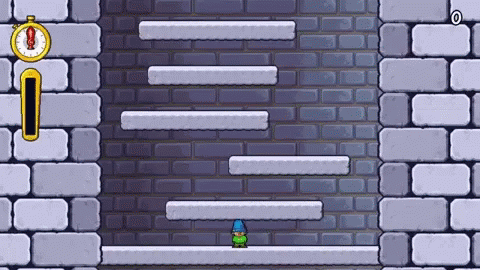Open Source Mastery Curation
This idea digs into curation. It’s some sort of open source mastery tool / resource curator / discourse network.
There’s a lot to learn from open source models.
- At first, I didn’t really get them.
- Why contribute to anything if you don’t get paid?
- What’s the benefit?
- How does “the thing” make money?
Today, there is SO MUCH INFORMATION.
So much. It’s obviously a blessing. Decentralization explodes the wealth of information. It’s incredible. It’s also really annoying to sift through. It seems ungrateful to say that, yet it’s an honest statement.

We spend so much time searching.
Even though our ability to search is undoubtedly exponentially faster and more robust than pre-internet ... there's a lot of wasted time searching. The better you are at searching, the less time you spend searching. Now, the better you are at prompting, the less you spend prompting. At the same time, we're getting lazier and expecting adaptive algorithms to do the work for us.
What I wish for is curation without giving up on freedom. We’ve heard repeatedly that the availability of information flips school on its head because it used to represent the place where you had to go to get information.
Specifically in education, I want to be able to go to a platform that shows me the things my kid should be able to do, and the multiple ways in which they can learn how to know to do them. The ways I can show them. The ways they can figure out for themselves. Every way segmented into different methodology buckets or something of that sort. I don't want kiddy text styles and flowers and teddy bears. I want a clean list and sleek user experience.
That said, I still think you can make it better that it is today. People in education are constantly overcomplicating some things or creating false dichotomies. There is no question that curiosity and creativity are critical and simultaneously not simple things that can be mastered. There's also no question that not everything you need to learn is that complicated to measure or political.
When about should someone know their colors? What are different resources to learn that? What complexities can you add on top of knowing basic colors? Can you change a tire? Do you know how to set a dinner table? These examples are obviously ultra simple but there are a lot of them and a ton of kids don’t know them and it would be very easy for them to learn. For example: I was the only kid who knew my social security number in middle school. As we filled out our state testing information, the teacher had to call each parent to retrieve their numbers. Perhaps today that’s all stored in a CRM … but it’s an example of something simple to know. I was taught to look adults in the eye and firmly shake their hand from a very young age. This is another simple thing anyone can know how to do that will give them a leg up on life. Now up the complexity of these skills to master, have specific, recognized assessments to understand mastery and you’ve got something interesting.
What I envision has less to do with housing a specific curriculum. It’s more about an open-sourced curation of skills and concepts to master.
It’d break down the general steps to achieve that mastery. The actual content to learn wouldn’t be housed there - it would be aggregated by users and filtered / recommended based on some sort of rich metadata plus voting methodology or efficacy ranking system.
Example: If I have a kid tomorrow, and want to know what things they should be progressing on by some bounds of normalcy by age 6, I’ll have to reference 100 different websites. All of them riddled with diaper ads and brutal font selections and infinite hedging. Or I can pick one parenting website but then trust that it’s curation is all-encompassing, evidence-backed, and right. Instead, what if there is an open-source epicenter that at the same time is not centralized. It’s a mere curation and somewhere you can cleanly see what skills there are to master, and the associated recommended resources to master them. You can see some level of consensus on the elemental parts and then also dive into niches. It'd be setup so you'd have much greater trust in the recommendations that they're coming from human experience and research not whoever has the biggest wallet.

Eliminating third party manipulation is important.
The current education system has gigantic lobbying efforts to put certain things in the curriculum, or to use certain textbook companies, or to teach to tests. Look into “whole language instruction” to see what a disaster that was. Learning the truly necessary things is consistently pushed over by outside interests.
If you create an open source, decentralized model I wonder if that would fix these odd infiltrations? You’d still need the platform to make money somehow and if you choose advertising you’re essentially defeating the purpose of what I just said I wanted to avoid.
Some things I could picture someone doing on this platform:
- A parent seeing a giant list broken down bitesized of what things their kid should master and having a clearer understanding of what to do and generally when.
- They can decide what they agree is worth mastering and what isn’t and customize it to themselves.
- They can see the popularity of mastering “the thing”. They can also get involved with niches. (Ex: Aviation, chess, etc).
- They can see the consensus that “the thing” is really important or not and engage in conversation about it.
- The parent/kid being able to check it off and receive points in some way that doesn’t create a dependence on external validation.
- You get badges or some recognition of your skills that allows you to help others who are building those skills.
- The badges aren’t really geared toward future credentialing but they could I guess if someone wanted to recognize them that way.
- The parents also earn badges or skill points. Perhaps they are the ones incentivized to help others building those skills. Perhaps content creators help here since if you went outbound to YouTube or something you’d get monetization … although then this introduces that third-party issue.
- Maybe it’s a freemium model where the discourse you have to pay to be part of
- Maybe it’s actually exclusive and invite only and those invited have to take some sort of ethical test or something to prove they’re a value-add to the community
- Perhaps for kids if you build enough skill badges you get to try out for some sort of entrepreneurial incubator program
- Perhaps the skill badges are what you need to get into certain schools instead of just a test?
- Perhaps it’s actually more for parents. If parents are lazier and less involved, this is a way for them to make parenting easier?
- You could have parenting forums and classes
- You could have partnerships solely with evidence-based tools
- Maybe the parent has as score just like the kid to hold both accountable
- Could give some portion of revenue to literacy programs
- Have it be some sort of combo between Y Combinator, Reddit, GitHub, and other things
- People could jump into groups made up of their local community, or school, or family, or of niche interests and that’s how they upskill themselves
- You’d implement mechanisms for collecting user feedback and continuously iterate on the platform based on this input.
- You’d hire expert child psychologists, voted on best teachers, educational researchers to help get it off the ground but from there you wouldn’t have one group really determining what is on there.
It could be interesting to:
- make it easier to understand the components of a capable human
- make it easier to master the straight-forward components
- make it easier to waste less of a kid’s time
- make it easier to be a better parent
- allow more unstructured time to grow in the not-straight-forward areas (creativity, curiosity, building)
Hmm … I think I’ll keep thinking about this idea. I can see something in this very ambiguous realm being cool. It doesn’t solve everything but it’d be really helpful to remove the curation dependency from our current school system.
